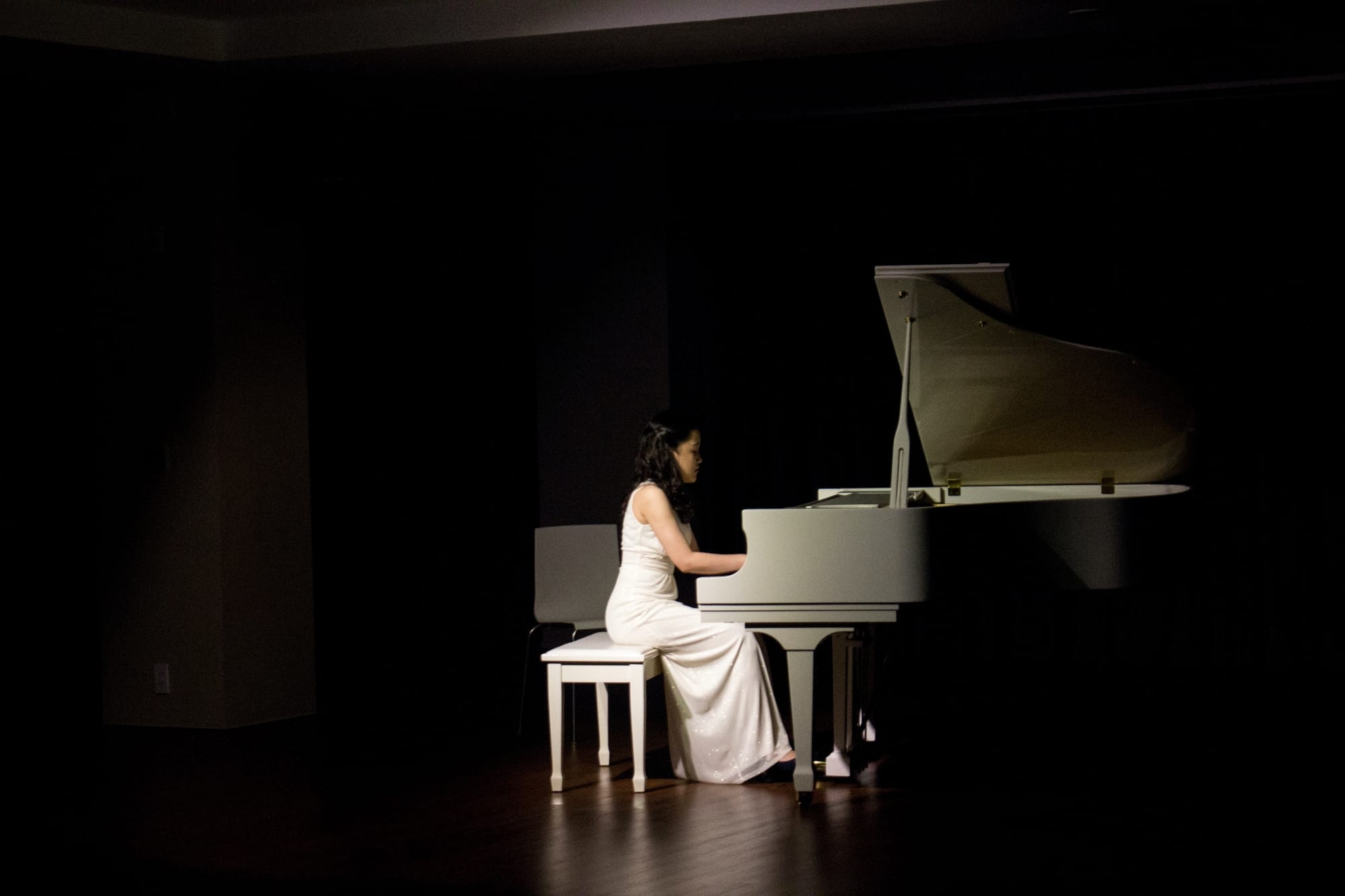
Do You Need a Piano At Home If You Are Taking Lessons?
Piano lessons, or any instrument lesson for that matter, are an investment. Having to buy an instrument to have at home only makes it moreso, and considering the cost of an acoustic grand piano (or even an upright piano), the decision to have a piano at home is significant.
So is it really necessary to have a piano at home? And how good does that piano need to be? We’ll discuss this question in detail below.
If you’d like more information about our piano lessons in Houston, or if you are closer to our Pearland or Katy studios and need piano lessons in Pearland or piano lessons in Katy, please get in touch.
Do You Need a Piano At Home If You Are Taking Lessons?
Yes, you do need to be able to practice on an instrument at home if you are taking lessons. It doesn’t need to be an expensive piano though - you just need to be able to review the notes and practice your lesson assignments.
Any music teacher will tell you that most of your progress will be made in your daily practice sessions on your own. In your music lessons, your teacher will tell you exactly how and what to practice, and that’s incredibly important. But executing those practice strategies is up to you.
What Kind of Piano Do You Need For Practicing at Home?
Any piano or keyboard that you enjoy playing on a daily basis will suffice. If you dislike your instrument so much that it deters you from practicing often, then it is actively harming you.
In general, you will be better off with a full 88-key keyboard. This is the size of a traditional piano keyboard, and practicing on a smaller keyboard may hinder your progress. If you must get a reduced size, go with a 61-key keyboard.
Secondly, make sure you at least have a damper pedal - this is the right-most pedal on a traditional piano. This is a common tool in piano music, and you must learn how to use it.
Is a Digital Piano or Electric Keyboard OK to Practice On?
Yes, you will improve by practicing on a digital keyboard at home. Digital pianos, like the Yamaha Clavinova line of instruments, can replicate the sound and feel of an acoustic grand piano quite well.
When purchasing an electronic instrument, check to see if the keys are weighted - if they are, they will closely resemble the feel of a real piano. Furthermore, ask the sales rep if the piano has touch sensitive keys, meaning that if you depress the key gently or aggressively, the volume will respond in kind. This is how an acoustic piano works.
If you have the budget for it, a digital piano is a better investment than an electric keyboard. Digital pianos have a more beautiful sound, more piano-like features, and have a cabinet that resembles an upright piano. If you must get an electric keyboard (either a table top version or something you can place on a stand), the Casio Privia models are decent.
Additional Reading: Youth Music Ensemble Opportunities in Houston
What Kind of Acoustic Piano Should a Beginner Pianist Buy?
Simply put, you should purchase a piano that you enjoy playing. Acoustic pianos can remain in service for decades, and you may even be able to pass it on to the next generation, so don’t hesitate to buy a piano that you love, even if it costs a bit more.
The popular Steinway Model S (a baby grand) fits comfortably in most homes, but because of its popularity, you can pay $25K-$30K for even a used piano. You may be able to purchase a larger Steinway model on the used piano market for cheaper, believe it or not.
Yamaha pianos have gotten better each year, and they are a fantastic option - visit a Yamaha piano dealer to try out both upright and grand piano models.
If you’d like a grand piano but can’t afford a Steinway, Baldwin and Boston pianos can be purchased for under $10K, and they play beautifully.
It’s important to note that every acoustic piano plays differently, so always try it out before you buy one! If you don’t yet play the piano proficiently, you may want to bring a musical friend with you when you visit a showroom.
Does the Kind of Piano You Buy Make You Better or Worse?
In your first year or two of lessons, no - the specific piano you own will probably not make you better or worse. You will be learning finger dexterity, learning the notes, getting comfortable with playing piano hands together, and other fundamentals.
If you are an advanced pianist, and especially if you will be performing, the quality of your piano absolutely does matter. If you will be performing on grand pianos, exclusive practice on a digital keyboard or an upright piano may cause issues. The keys will feel different, the music stand placement is different, and more. Also, if you are practicing challenging repertoire on a keyboard without weighted keys, you may have trouble transferring your technique to a traditional piano.
Get Started With Music Lessons At Cixi Music Studio
Cixi Music Studio also offers voice lessons in Houston, violin lessons in Houston, and more. If you want private lessons with expert teachers, please contact us at your earliest convenience.




